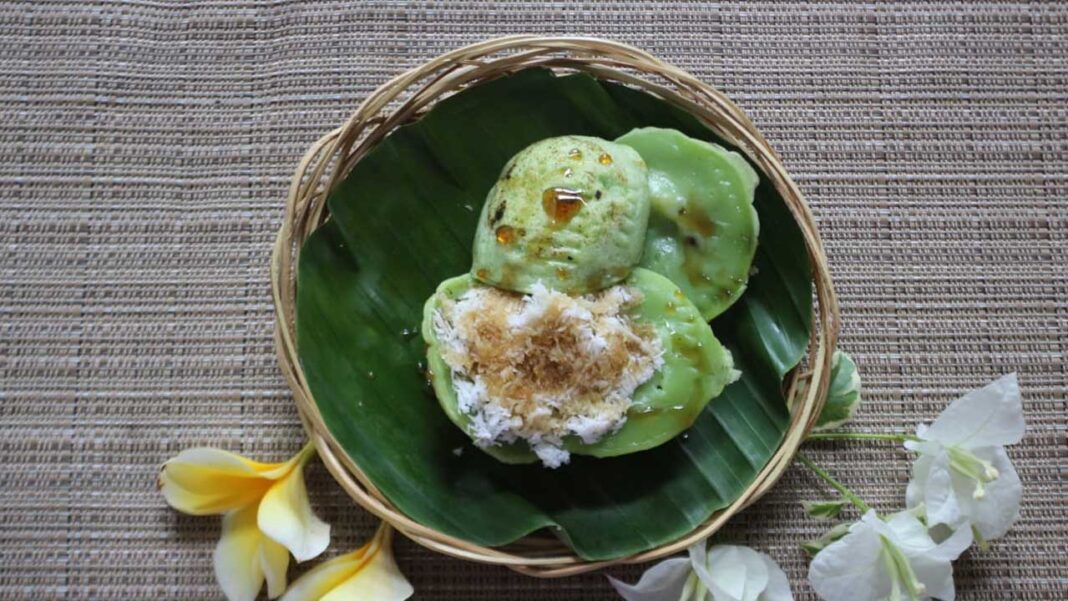With its unique and delightful array of flavors, it isn’t surprising that people who travel to Bali rave about the island’s local food. This is partially due to the fact that the indonesian food in Bali is very different from the rest of the country. With a predominantly hindu population, you can enjoy pork dishes in Bali that you wouldn’t normally find in other parts of indonesia! This province offers so much in the way of interesting culture and cuisine that it can be difficult to know exactly which dishes to try to ensure that you have tried the best. Here’s a guide to some traditional balinese dishes that you absolutely must try when you visit Bali.

LAKLAK
Laklak is a Balinese traditional little pancake with grated coconut and melted palm sugar. This food is made of rice flour, water, coconut milk, suji leaf extract, baking powder, salt, grated coconut, and brown sugar.
BABUR SUMSUM
Bubur sum sum is an Indonesian dessert made by cooking rice flour in coconut milk and served with palm sugar syrup. There is also a variety served with sweet potato dumplings.


BETUTU
Betutuis a Balinese dish of steamed or roasted chicken or duck in rich bumbu betutu (betutu spice mix)This highly seasoned and spiced dish is a popular dish in Bali and Lombok, Indonesia. An even spicier version is available using extra-spicy sauce made from uncooked (raw) onion slices mixed with red chili peppers and coconut oil.
LAWAR
Lawar is an Indonesian dish created from a mixture of vegetables, coconut and minced meat mixed with rich herbs and spices, originating from Bali, Indonesia. This dish is commonly found in restaurants and warungs in Bali. Despite its rich vegetables mixture, lawar is not a vegetarian dish, since most often it is mixed with minced meat or even blood
NASI JINGGO
Nasi jinggo is a Balinese ready-to-eat street food, packaged in small portions of banana leaves. Apart from being eaten as street food, nasi jinggo is also used in various religious ceremonies such as the Ngaben funeral rites, birthday celebrations, and meetings.
(The author Niluh Werdiani is the Managing Director of TRIA UMA WISATA TOURS & TRAVEL)




